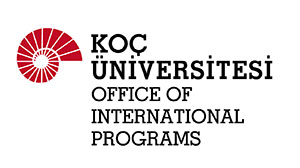Koc University’s position as a leading global university is enhanced by the well-established partnerships with prominent higher education institutions worldwide. International Partnership Development aims to build and nurture these collaborations with a strategic approach.
Our partner institutions should complement the University’s strengths and further the core missions of teaching and research. International affiliations should be based on clear commitments from Koç University colleges or schools and departments and the partnering institutions, and should offer long-term benefits to the participating Koç University unit(s) and the partnering institutions. Sustainability of the affiliation should be a major factor when selecting a partner institution.
International agreements, which formalize the University’s international partnerships, are established by a process of consultation, negotiation and approval, in accordance with the University’s rules and procedures.
Process for establishing an international agreement
The first step in setting up an international agreement (of a type handled by Exchange Programs & Partnerships Team) is to complete a Proposal to Negotiate an International Agreement (Proposal) which sets out relevant details of the proposed agreement, including parties, scope of proposed activities and benefits to the University.
In addition to securing approvals from relevant stakeholders at the University, the Proposal should be circulated to the Exchange Programs & Partnerships Team for feedback on how the proposed partnership aligns with relevant regional objectives and initiatives, and the University’s Strategic Plan.
Once a completed Proposal is submitted to the Exchange Programs and Partnerships Team, a draft agreement will be produced. This draft will then be circulated for internal comment from stakeholders at the University, before being shared with the proposed partner institution for its review and comment.
Preparation and negotiation of draft agreements can be a lengthy process. The Team Leader for Exchange Programs and Partnerships will be able to advise on an indicative time-frames. Urgent agreements will be given corresponding priority.
The University uses standard templates for all of the types of agreements listed below. Arrangements that depart from the standard templates will need to be reviewed by the Office of International Programs.
Types of Agreements
The University has moore than 360 active agreements with international institutions, of a type handled (or recorded) by Exchange Programs & Partnerships Team including:
- Erasmus+ KA131 Student & Faculty Mobility
- Erasmus+ KA171 International Credit Mobility
- Double Degree Program Agreements
- Joint Degree Program Agreements
- Joint Study Abroad and Exchange Agreements
- Memoranda of Understanding (MOU)
- Sponsored Project &Student Scholarship Agreements
- Faculty Exchange Agreements
- Student Clinical Placement Exchange Agreements
- Student Co-tutelle Agreements
- Student Exchange Agreements
- Student Exchange Agreements for the Master of Management
(CEMS) /CEMS Masters in International Management
- Summer Exchange Agreements
- Visiting Scholar Agreement (VSA)
The Vice President’s Office for Research and Development at the University provides support in relation to all research agreements (commercial, government and non-commercial) that involve the management of research and intellectual property.
Since 2014 Summer, Koç University Visiting Scholar Program is managing by the Vice President’s Office for Academic Affairs.
Faculty members with research appointments (Asst. Prof., Assoc. Prof. or Prof.) can apply to take advantage of the Koç University Visiting Scholar Program. Applicants (other than those for Harvard) are expected to make arrangements with the University they wish to visit and to obtain an invitation from thereof. This program is managed by VPAA Office.
Similarly, we encourage faculty members to extend invitations to scholars working at international universities to participate in the Visiting Scholar Program at Koç University so that we can establish the foundations for research-oriented and long-lasting partnerships.
Koç University support for outgoing scholars include:
- a stipend of USD 500 per week or the equivalent amount of the current currency of the destination country for a duration of 4 to 8-week,
- a round-trip economy class airfare.
- Outgoing participants are expected to make their own housing arrangements.
Koç University support for incoming scholars who will be hosted by a Koç faculty include:
- a round-trip economy class airfare,
- accommodation at faculty housing at no cost (subject to availability).
Faculty members interested in participating in this program to visit another university or to host a visiting researcher should first discuss their possible visits with their deans and secure their support, then they should apply via apply.ku.edu.tr (for outgoing applications) and apply.ku.edu.tr (for incoming applications).
